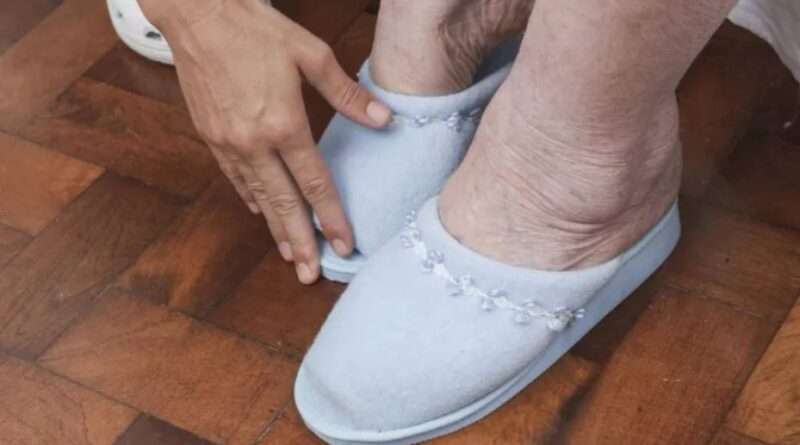There are nine alarming signs of swelling feet that you must never ignore.
There are many additional causes of swollen feet. The most common treatment for swelling is resting the feet or submerging them in ice water.
However, if your feet suddenly start to swell, this could indicate a more serious issue, so you should get help from a doctor.
Foot Swelling Causes:
Deep vein thrombosis
Deep vein thrombosis (DVT), according to the Mayo Clinic, happens when a blood clot forms in your body’s deep veins, typically in your legs. Your legs might feel heavy and swollen, and your veins might appear clearer. However, some people might not show any symptoms. DVT can impede blood flow to the lungs, causing pulmonary embolism, which is dangerous.

Achilles Tendonitis
The body’s strongest tendon, the Achilles, receives a great deal of daily use. This may cause discomfort and make moving difficult. Ankles and heels may enlarge in a person with Achilles tendonitis, especially after exercise or other physical activity.
Osteoarthritis
The most prevalent type of arthritis is osteoarthritis, which is a widespread issue. It can make your feet pain, feel sore, stiffen, and swell when it affects them. For instance, yoga might make you feel better by easing discomfort.

Heart failure
Swollen feet are one of the subtle signs of heart failure, according to the American Heart Association. The legs, feet, or ankles swell as a result of fluid accumulation brought on by the heart’s malfunction.

Lymphedema
The Mayo Clinic claims that lymphedema causes your arm or leg to enlarge because extra lymphatic fluid accumulates there. You should seek medical assistance right away if the swelling develops quickly or is severe.
 Cellulitis
Cellulitis
Several hypotheses contend that poor lymphatic blood flow is the root cause of cellulitis.
The skin on the legs below the knees is most frequently affected by cellulitis, which causes the skin to swell and become hot to the touch. Cellulitis can affect any part of the body.
Gout
The National Institute of Arthritis claims that gout is a type of arthritis brought on by an overproduction of uric acid in the body. The painful attacks of this kind of arthritis typically occur at night. The big toe’s inner joints may quickly develop swelling, redness, and pain. You should see a doctor right away if you’re in severe pain or if this is your first time feeling it.

Foot bursitis
A disorder called bursitis affects the tiny fluid-filled sacs that cushion the tendons, muscles, and bones. Although it can affect the knees, heels, and big toes, it most frequently affects the shoulders, hips, and elbows. If your foot has bursitis, you could experience pain, stiffness, and a red, swollen appearance.

Rheumatoid Arthritis
Usually, it starts in the feet. Although each person is affected differently, excessive edoema and swollen, painful joints are common symptoms. The disease’s nodules under the skin can cause muscles and tendons to grow as well.

You should see a doctor if you think that the swelling in your feet may be a sign of a medical issue.
Please discuss your thoughts on this subject in the section below. Share this important information with your loved ones.
SOURCE:

Facebook Comments